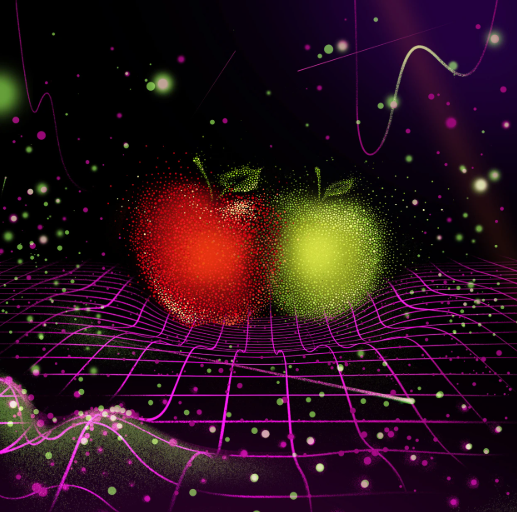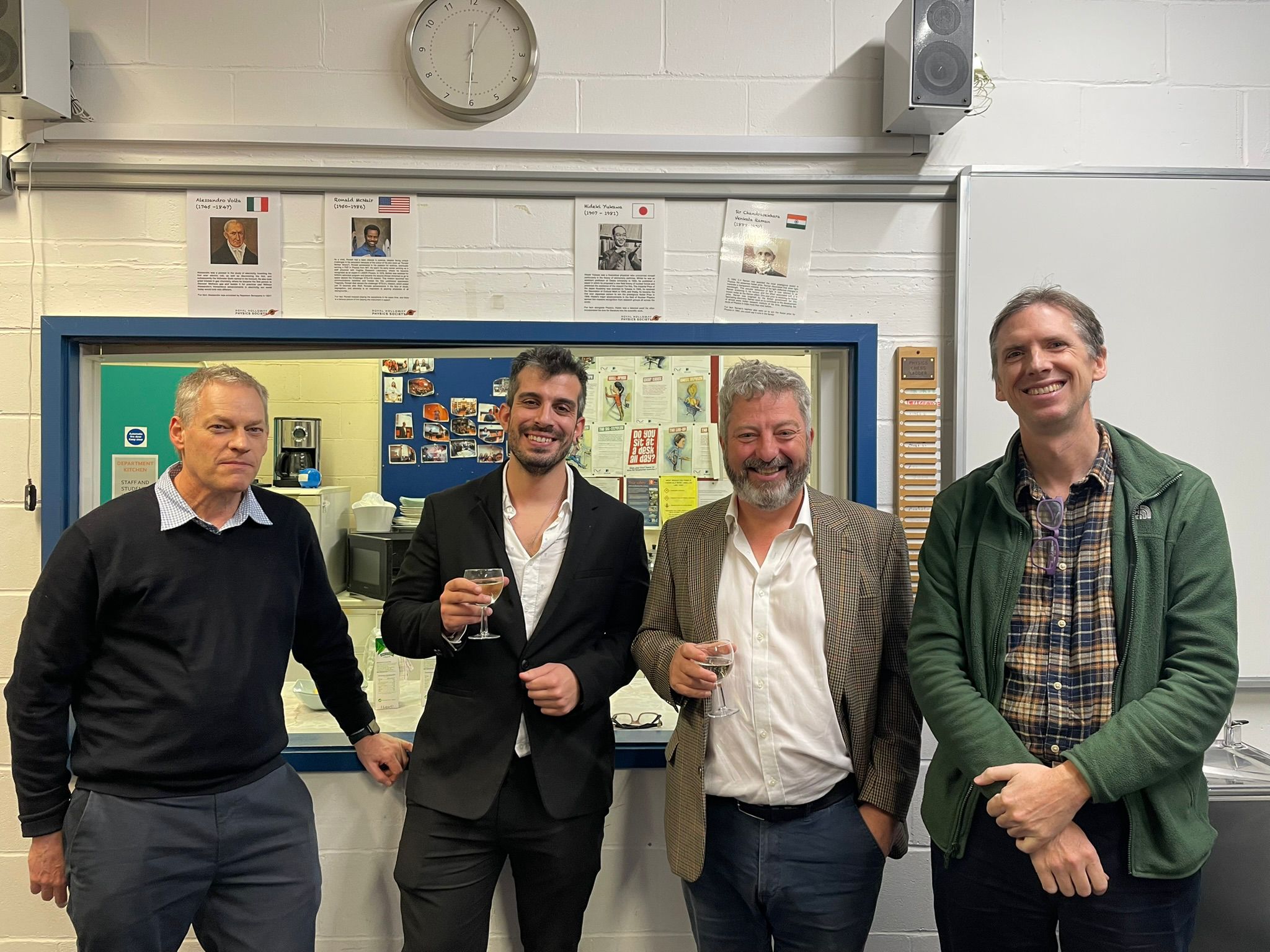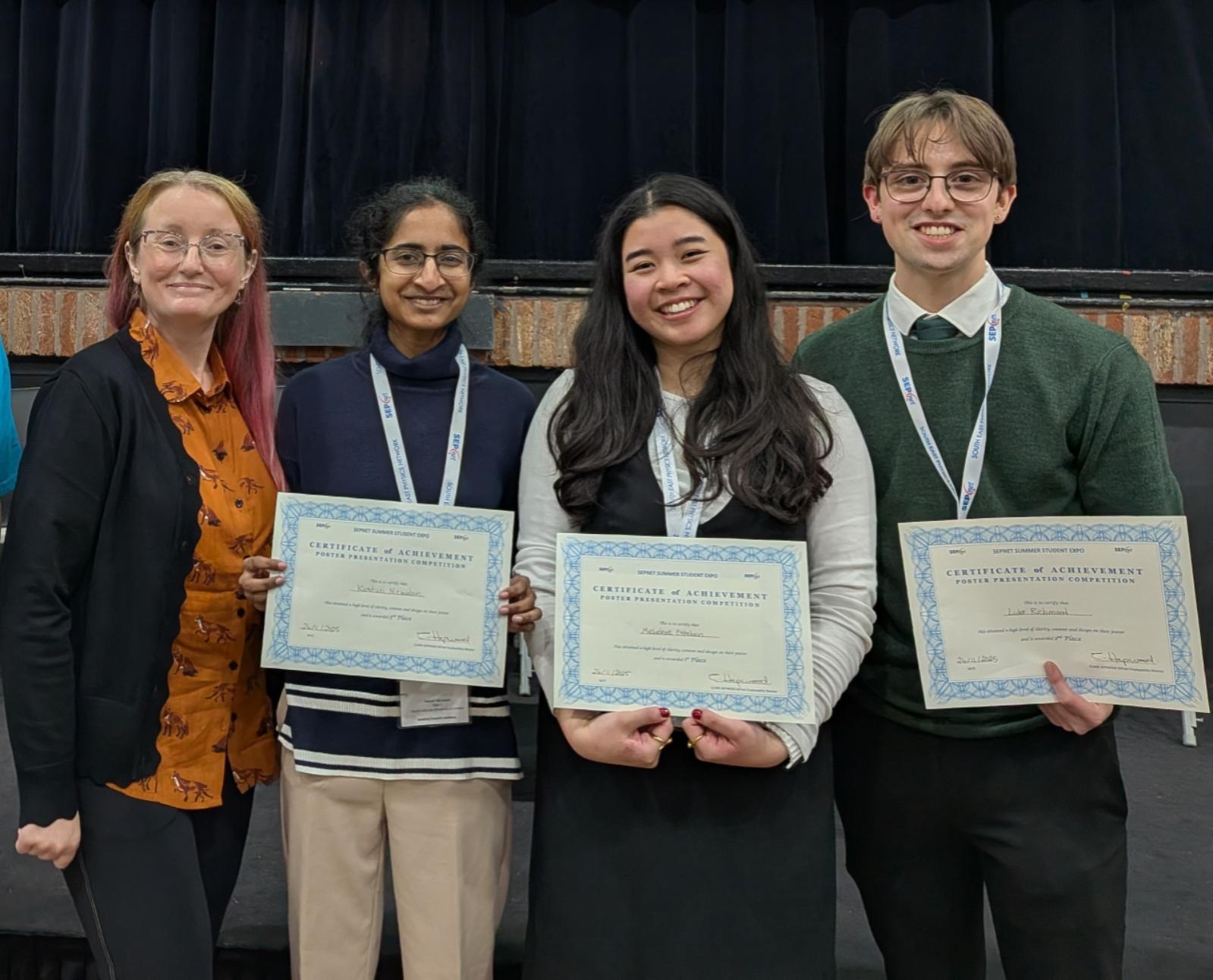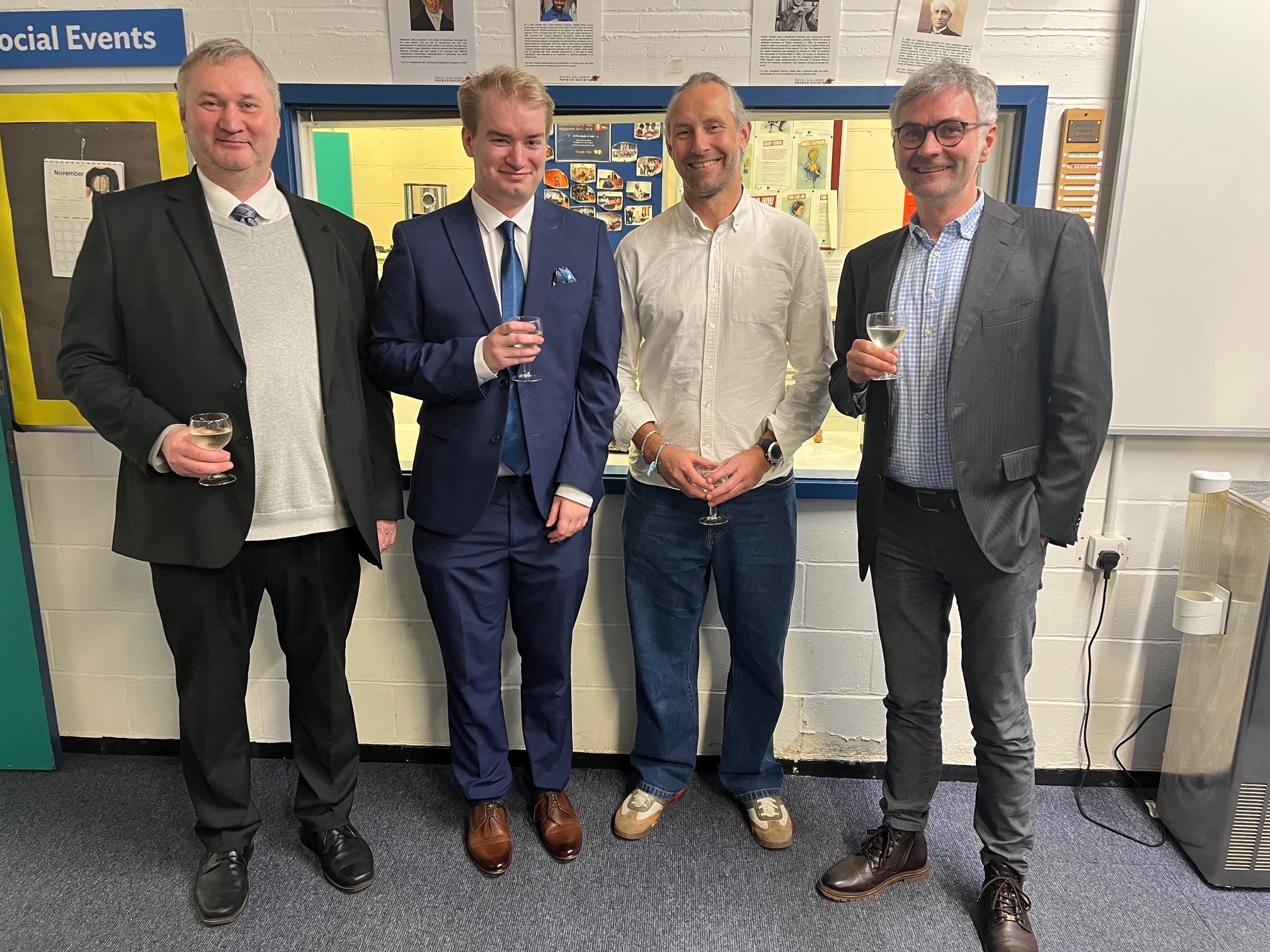A recent Nature feature has highlighted the work of Dr Richard Howl from the Department of Physics at Royal Holloway, University of London, on one of the most profound open questions in physics: is gravity a quantum phenomenon?

Two apples colliding over a mesh representing the fabric of space-time. The image was created by artist Adrià Voltà.
Dr Howl, working with Nobel laureate Sir Roger Penrose (Oxford), Professor Ivette Fuentes (Southampton), and other collaborators, has developed experimental proposals using ultracold atomic gases and Bose–Einstein condensates to test whether gravity obeys the laws of quantum mechanics.
These ideas are presented in several publications (New J. Phys. 21 043047, PRX Quantum 2 010325, arXiv:2304.00734).
“We don’t have any experimental evidence of how gravity becomes quantum or of whether gravity is a quantum phenomenon at all,” says Dr Howl.
Although the experiments are technically demanding, they could provide the first direct evidence linking quantum mechanics and general relativity. Research groups around the world are now working to turn these concepts into practical tests.
The recognition in Nature underscores Royal Holloway’s leading role in fundamental physics and its contribution to answering some of the most challenging questions in science.
Read the full Nature article: Is gravity quantum? Experiments could finally probe one of physics’ biggest questions

























